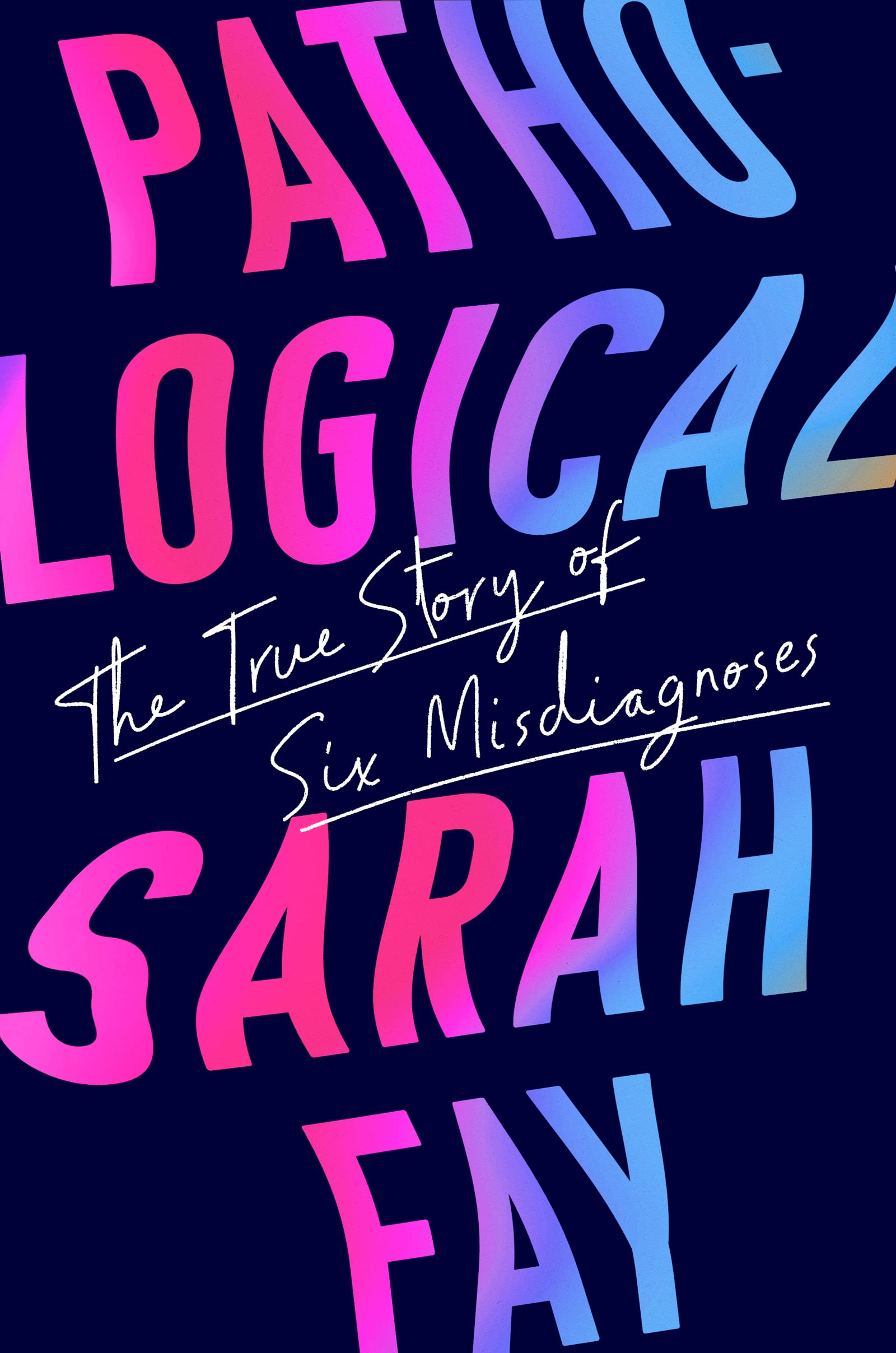Podcast Interview with Martha Nichols
The Trouble with Mental Health Diagnoses
Also available on Apple Podcasts, Spotify, iHeartRadio, and elsewhere.
 Episode Notes: In our inaugural episode of the Talking Writing podcast, I have a wide-ranging conversation with Sarah Fay about her 2022 memoir Pathological: The True Story of Six Misdiagnoses. The impact of storytelling on mental health is all over the media these days in books, essays, and feature articles. In this interview, we get into the outsize influence of the Diagnostic and Statistical Manual of Mental Disorders—otherwise known as the DSM—along with what it's like to write personally about a difficult topic.
Episode Notes: In our inaugural episode of the Talking Writing podcast, I have a wide-ranging conversation with Sarah Fay about her 2022 memoir Pathological: The True Story of Six Misdiagnoses. The impact of storytelling on mental health is all over the media these days in books, essays, and feature articles. In this interview, we get into the outsize influence of the Diagnostic and Statistical Manual of Mental Disorders—otherwise known as the DSM—along with what it's like to write personally about a difficult topic.
Sarah Fay is an award-winning author and mental-health advocate who writes for many publications, including the New York Times, Atlantic, and Paris Review, where she served as an advisory editor. Her essays have been chosen as a Notable Mention in Best American Essays. She’s currently on the faculty at DePaul University and Northwestern University.
 Sarah's troubling progress through the mental-health system is powerfully told in Pathological, which weaves her personal story with a journalistic investigation into the history and uses of the DSM. I interviewed Sarah over Zoom last May, shortly after Pathological came out. Previously, we had co-organized a panel for NonfictioNOW 2021 (“Facts and the First-Person Voice”), and we both share personal and professional interests in stories about mental illness as well as first-person journalism.
Sarah's troubling progress through the mental-health system is powerfully told in Pathological, which weaves her personal story with a journalistic investigation into the history and uses of the DSM. I interviewed Sarah over Zoom last May, shortly after Pathological came out. Previously, we had co-organized a panel for NonfictioNOW 2021 (“Facts and the First-Person Voice”), and we both share personal and professional interests in stories about mental illness as well as first-person journalism.
As writers, we're also fascinated with punctuation, and Sarah's reflections on different punctuation marks throughout Pathological form some of the quirkiest and most captivating parts of it. I'll leave you to listen to why she discusses punctuation in a memoir about mental illness and health. But here's one quote, part of which I read aloud toward the end of the episode, to whet your appetite – Martha Nichols
Brackets, like human beings, are relational. At times they signal unncessary information; at others, they draw attention to what's inside. Recently, someone reminded me that they hold space [] for words that may or may not yet exist. They communicate to the reader when someone's words have been altered.... Brackets clarify the context: She has an illness [bipolar]. They nest information: She has an illness (bipolar [which she's been told is lifelong]). They point out a typo or an error in the original text: She's really bipolr [sic]. Not my error; someone else's.
— From Pathological by Sarah Fay, p. 237
Publishing Information for this Episode
These works were mentioned in the interview or inform what was discussed.
- Pathological: The True Story of Six Misdiagnoses by Sarah Fay (HarperCollins, 2022).
- Pathological: The Movement, mental-health advocacy website.
- Diagnostic and Statistical Manual of Mental Disorders (DSM-5-TR), American Psychiatric Association.
- Man’s Search for Meaning by Viktor E. Frankl, translated by Ilse Lasch (Beacon Press, 2006, originally translated into English in 1959); teaching guide provided here.
- Healing: Our Path from Mental Illness to Mental Health by Thomas Insel (Penguin Random House, 2022).
- “Nurses Continue to Rate Highest in Honesty, Ethics” by RJ Reinhart, Gallup News, January 6, 2020.
- The Loss of Sadness: How Psychiatry Transformed Normal Sorrow into Depressive Disorder by Allan V. Horwitz and Jerome C. Wakefield (Oxford University Press, 2007).
- Start with a Question, Sarah Fay’s newsletter.
 Martha Nichols co-founded Talking Writing and is a faculty instructor in the journalism program at the Harvard University Extension School. Much of her teaching craft appears in her recent book First-Person Journalism: A Guide to Writing Personal Nonfiction with Real Impact (Routledge, 2022).
Martha Nichols co-founded Talking Writing and is a faculty instructor in the journalism program at the Harvard University Extension School. Much of her teaching craft appears in her recent book First-Person Journalism: A Guide to Writing Personal Nonfiction with Real Impact (Routledge, 2022).
For more information, subscribe to her newsletter and website: Martha Nichols Writer.
